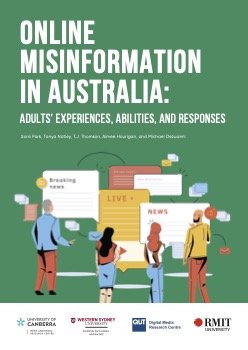By Blerta Aliu and Dren Gërguri
The rapid digital transformation and the rise of disinformation pose significant challenges to democratic societies, making Media and Information Literacy (MIL) a critical tool in combating misinformation, fostering critical thinking, and promoting responsible media engagement. Kosovo ranks among the lowest in Europe in media literacy, leaving its population highly susceptible to disinformation, biased reporting, and digital manipulation. Despite this urgent need, Kosovo lacks a comprehensive MIL strategy, a structured curriculum, and adequate teacher training, making it essential to develop systematic policies that integrate media education across institutions. This document consolidates six policy briefs that assess key MIL challenges and propose strategic solutions. The findings emphasize the need for a comprehensive and coordinated approach, including integrating MIL into the formal education system as a core subject, equipping teachers with necessary training, and expanding public awareness initiatives. AI literacy is also highlighted as a growing necessity, as artificial intelligence plays an increasing role in shaping information ecosystems. The policy briefs further address the importance of ethical and inclusive media representation of marginalized groups, particularly in combating stereotypes and biased reporting. Additionally, strengthening students' digital competencies is vital to navigating online risks such as misinformation, cyberbullying, and manipulation. AI-based fact-checking tools are also identified as crucial for verifying information efficiently, while addressing gender stereotypes in popular media is essential to fostering more inclusive and equitable societal narratives. The OSCE Mission in Kosovo plays a central role in advocating for MIL reforms by fostering collaboration among policymakers, educators, media professionals, and civil society actors. Through its support for responsible journalism, digital literacy programs, and fact-based public discourse, the Mission contributes to the development of a more informed and resilient society. Investing in MIL is not just about strengthening Kosovo’s ability to counter misinformation - it is a fundamental step toward safeguarding democratic principles, ensuring media freedom, and fostering a culture of informed and active citizen engagement in an increasingly digital world.
Prague: The Organization for Security and Co-operation in Europe (OSCE), 2025. 34p.








